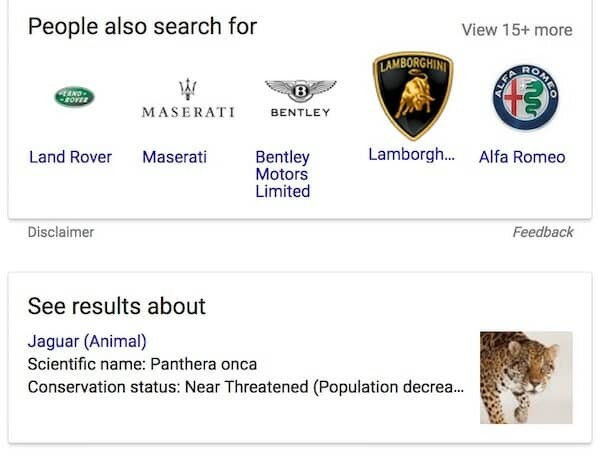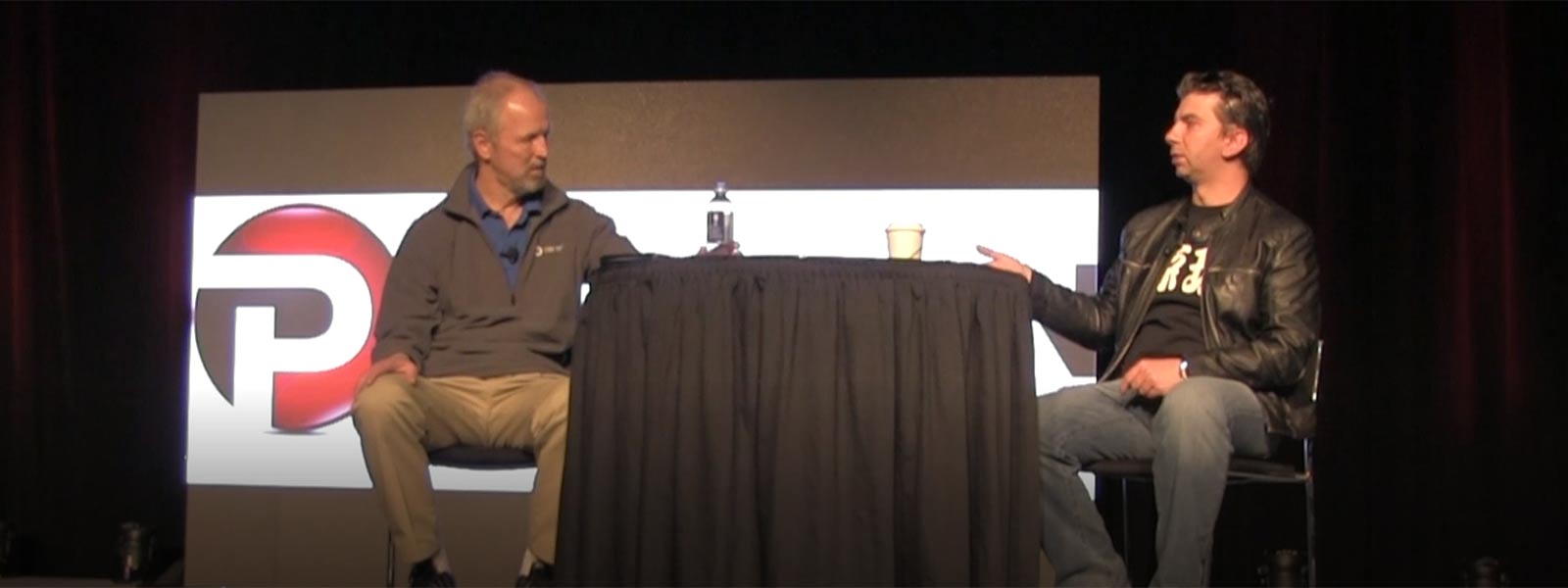How Does Google Decide What Features Go on a Search Page?
At Pubcon 2017 in Las Vegas, Perficient Digital’s Eric Enge sat down with Google Webmaster Trends Analyst Gary Illyes for an in-depth keynote conversation about recent developments in search and SEO.
In this, the first of four video excerpts from that conversation we’ll be publishing, Eric asks Gary about how Google handles “query deserves diversity,” and how videos bid for ranking position in universal search. A transcript is below the video.
Other videos in this series:
- Can Pages Rank on Google without Links?
- Does Google Use Online Mentions for Search Ranking?
- Does Google Have a User Happiness Score for Search Ranking?
Transcript
How Google Handles Query Deserves Diversity
Eric: I want to start by talking a little bit about the ranking stuff. It’s your favorite topic.
Gary: Great, I love that, when you ask me about ranking stuff.
Eric: What I actually want to do is focus on the concept that some people refer to as “query deserves diversity.” Basically, that is when ranking signals might suggest one way of ranking pages but, because user needs are varied, you might use other algorithms to supplement the standardized results.
A perfect example would be when somebody searches on “how to tile a bathroom floor,” and you get some YouTube videos in the results because a lot of people want YouTube videos. So, that’s an example of “query deserves diversity.”

But, the first example I’m talking about is a query like “Jaguar,” because jaguar can be the animal, a car, an operating system, a guitar, and then, with a little modification, an American football team. Right?
Gary: That’s the one with the bat when they hit the ball?
Eric: Yes, that’s the one.
Gary: Fine point.
Eric: So, if you do a search on “jaguar”–and this is speculation on my part–it might be that the normal results would show all cars, if you didn’t separately recognize that, “Oh, well, some of the people who are searching on the phrase actually want a page about the animal.” So, this is a good example of potential “query deserves diversity.” Is there something like that that’s real, where you look beyond the normal ranking signals and make the adjustment based on…?
Gary: So, there are a couple of them, off the top of my head. One is what you just described, the jaguar thing, where we don’t actually know what the user wants. And then, we would show them, perhaps, results about the animal, but then we would show a disambiguation box…
Eric: Below the Knowledge Panel…

Gary: Yes. Suggesting that they should look into the baseball team or whatever, and the car and I didn’t even know there’s an operating system.
Eric: And a guitar.
Gary: Okay, a guitar, fine. I’ll take it. So, that’s one thing. More typically, that’s very closely related to personalization because, obviously, if I search for “Jaguar” and then I clicked on the animal because I’m more interested in the animal than the baseball team, then you should get results about the animal because I clicked on the animal. So, for you, we would also serve a disambiguation box, and then you can make your own choice, and perhaps learn more about the baseball team. Oh, it’s a football team.
Eric: We’re just going with that.
Gary: Okay, fine. The other thing is when we bring in results from our other properties, like images, news, and video. Probably not news anymore, but video and images for sure. In that case, we have a system that learns that for some sorts of queries, one of our other properties typically does well for that particular query. So, for example, if we get many searches about “jaguar” on video search, then when the bidding happens in the search result page for a position, then video universal will bid for a position because it’s very relevant for the query.
[Tweet “Google’s algo learns when a term gets lots of video searches to include videos in regular search. >>”]
Videos Bid Against Other Features for Position in Google Search
Eric: So the concept that you’ve been talking about is the idea that everything has to bid for its spot in the search results, and that’s an important concept. But, the information you have available for a video to get that spot is different than the kind of information you have for a normal blue-link result, or different than you have for an image.
Gary: Yeah. So, that information is normalized, of course, so that every feature can bid singularly. But I will not go into details on how they normalize it. That doesn’t really matter.
[Tweet “In Google Universal Search, each possible search feature ‘bids’ against the others for a position. >>” ]
Eric: Right, but just in terms of what I was trying to get at, to help the people in the audience, if you see a particular search query, “how to install bathroom floor tile,” and you see there are two videos in there, and you’re trying to rank for that phrase with a web page, there probably are two less slots available on that page for you to rank because they’re taken by videos, right?
So, from an optimization perspective, and from a strategy perspective, you have to realize that you don’t have ten opportunities in that case, you have eight, because you’re not going to displace the video entirely, at least, with the blue link.
[Tweet “Videos in a SERP? Then there are fewer regular ranking positions. Good idea to make a video! #SEO >>”]
Gary: Yeah, that’s a good point. When you see a video universal on the web search results, then you probably want to start thinking about creating a video for that.
But also, realize that video ranking in video search is slightly different from web search ranking, because the videos are inherently different from textual content. So, we’ve used slightly different signals to rank those videos, especially if there’s no text evidence or text around the videos that would help us rank those videos.
Eric: Well, right, because the intent of a user when they’re on YouTube, is very different than when they’re on Google.
Gary: I’m talking about video search [in Google] specifically, not YouTube.
Eric: Oh, okay.
Gary: YouTube is like a different company. The fact that you see YouTube results in video search is because they do good SEO, or their pages are structured in such a way that it’s easy for us to understand them and to rank. With that train of thought, if you wanted to create something that can compete with YouTube, then you probably want to do something like…
Eric: Invest $100 million, or…
Gary: It’s actually $104 but, yeah.
Eric: Okay, $104 million. It’s good to have the number; it’s good to make it quantitative. So, if you see video or images, there is some level of decision in the bidding process that says it makes sense that a video or image is there on the page.
Gary: Right

